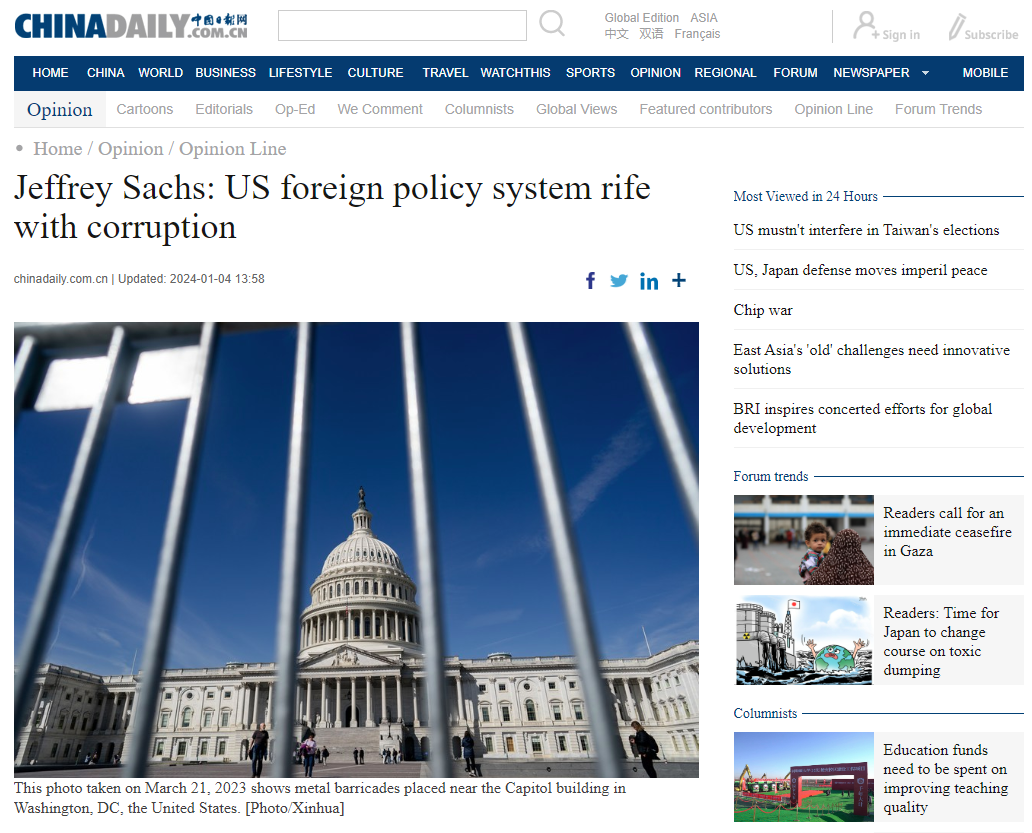LATEST INSIGHTS
Your Present Location: LATEST INSIGHTSJeffrey Sachs: US foreign policy system rife with corruption
Source: CD Published: 2024-01-04

The $1.5 trillion annual military expenditure is a scam that disproportionately benefits the military-industrial complex and the Washington insiders, simultaneously jeopardizing both America and the world, said Jeffrey D.Sachs, director of the Center for Sustainable Development at Columbia University, in an opinion piece published by Common Dreams , a reader-supported independent news media, on Dec 26.
Sachs sheds light on the intricate web of power dominating US foreign policy, asserting that a select, clandestine group, comprised of influential figures from the White House, CIA, State Department, Pentagon, Armed Services Committee of the House and Senate, and major military corporations, manipulates policy decisions with little regard for public interest.
According to Sachs, these key decision-makers oversee the extensive network of 800 US overseas military bases, manage hundreds of billions of dollars of military contracts, and dictate the course of war operations—a scenario wherein conflict becomes a lucrative business endeavor.
Beyond the staggering military contracts, Sachs underscores the collateral economic impact stemming from military and CIA interventions. 'With military bases in 80 countries around the world, and CIA operations in many more, the US plays a large, though mostly covert role, in determining who rules in those countries, and thereby on policies that shape lucrative deals involving minerals, hydrocarbons, pipelines, and farm and forest land,' said Sachs, adding that 'the US has aimed to overthrow at least 80 governments since 1947, typically led by the CIA through the instigation of coups, assassinations, insurrections, civil unrest, election tampering, economic sanctions, and overt wars.' Sachs challenges the purported alignment of foreign policy with the interests of the American people, asserting that, in reality, these maneuvers lack popular support. He contends that America's wars are not initiated by public demand but are orchestrated by decisions made at the highest echelons of power.
Sachs calls for an immediate action, urging the American people to address and reform a foreign policy system that is 'so broken, corrupted, and deceitful'. He concludes that 'peacemaking and diplomacy is the path to a US foreign policy in the public interests.'























































































 京公网安备 11010802037854号
京公网安备 11010802037854号





